Shops and Manufacturing
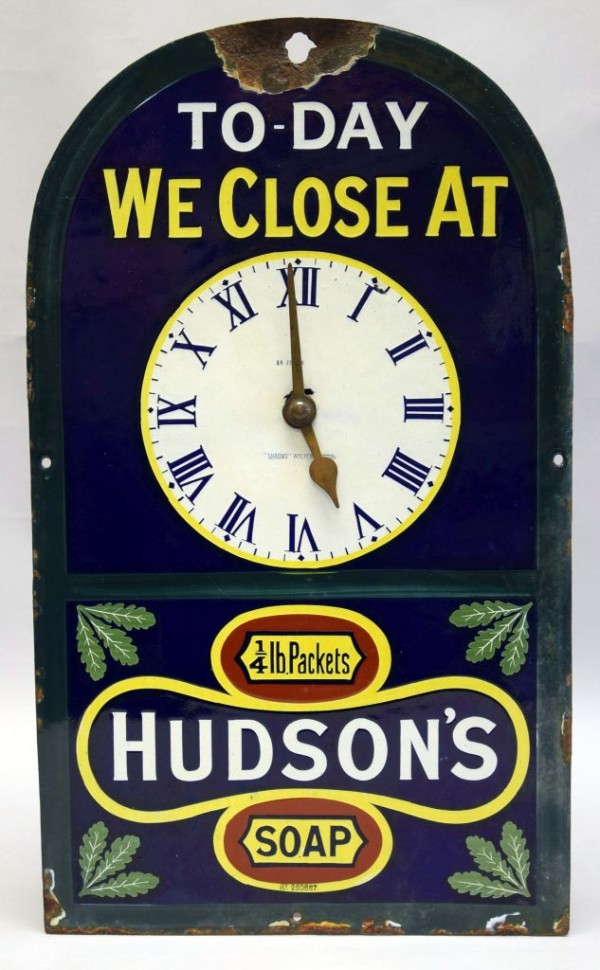
An enamel shop sign with clock 'Hudson's Soap' from the Gilbert family grocer’s shop and bakery, Belton
This business was started by James Gilbert in 1846 and flourished until c.1930, after which it seems to have been run with a minimum of changes until the 1960s, when the shop closed and was locked up. The shop would have been an important part of village life. It had a bakehouse and also provided a source of information for the village with 1920s bus timetables and adverts for fairs and shows found amongst the paperwork. This 'time capsule' remained largely untouched until 1981 when the Museum Service was offered the contents in their entirety.

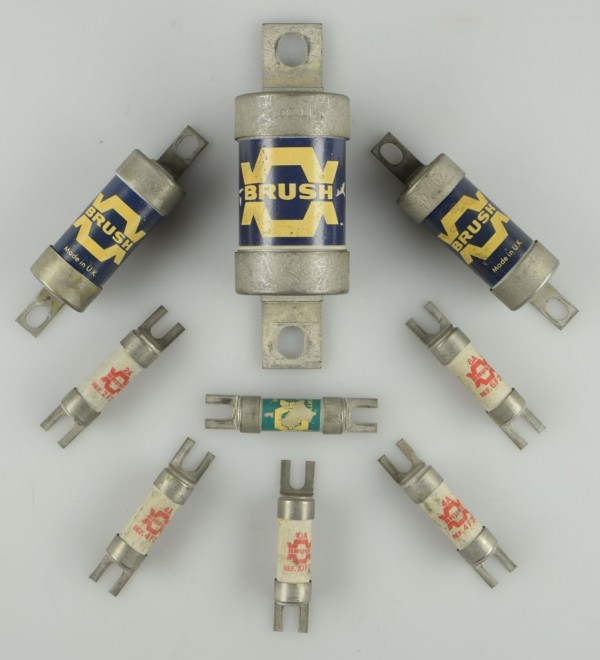
Fuses made by Brush
Loughborough developed into a centre for hosiery and hosiery machine manufacture in the 19th century, but other industries soon arrived tempted by the availability of cheap and level land along the Soar Valley. There were also many skilled workers and good railway links from Loughborough Station.
George Hughes, a manufacturer of small steam locomotives and horse-drawn tramcars, set up a new works by Loughborough station in the 1860s. The Anglo-American Brush Company took over Hughes’s Falcon Works in 1889 and greatly enlarged it in 1898-1900 to make electrical machines, tramcars and later buses and diesel engines. In the First World War they also built hundreds of aeroplanes. There were several thousand employees at Brush in the mid-20th century, and although the core of the works still exists there are now less than 1000 workers making electrical machines and refurbishing railway rolling stock.

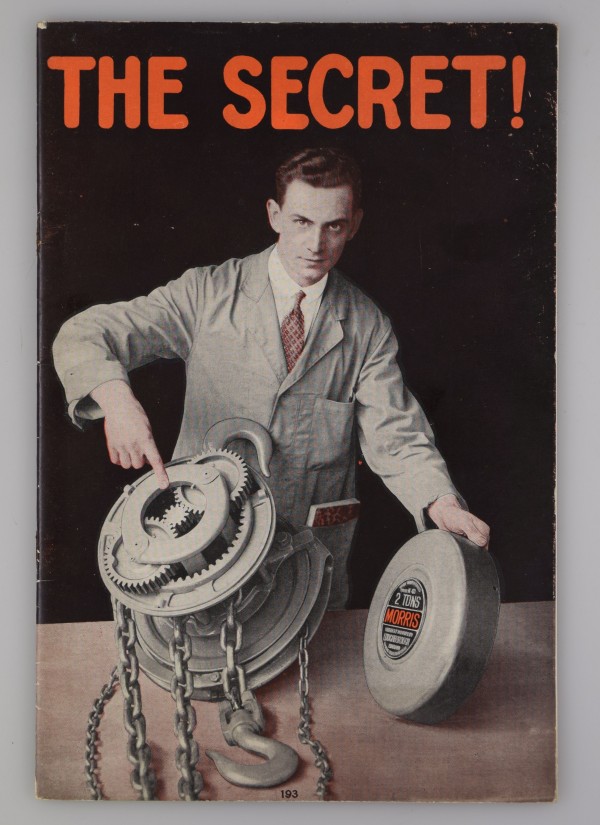
On the other side of the Midland Railway the partnership of Herbert Morris & Bastert Ltd moved to Loughborough in 1900 and expanded enormously in the early 20th century producing high quality hoists, cranes and pulleys. Their first factory was on Empress Road near the newly-opened Central Station, and after the First World War they took over the former Coltman’s Boiler Works near the Midland Station and built yet more workshops there. Morris’s remained a world-famous name in crane making until the 1980s but has since been absorbed by other companies, with production moving elsewhere.

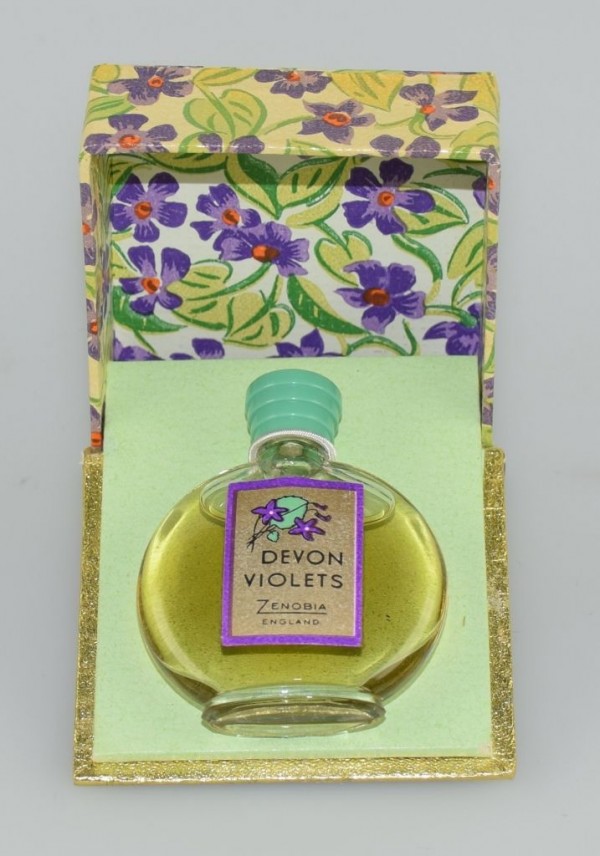
Zenobia Perfume 'Devon Violets'
The founder of Zenobia was a Mr Charles, a local chemist with a shop in Baxter Gate in Loughborough.
Charles started producing horticultural products before moving on to perfumes and toiletries in the early 1900s. The business slogan was "Romance in a Small Chemist's Shop" and the firm went on to make a huge variety of perfumes.
Some of the perfumes cost only pennies and many a bottle would be bought by young children as a birthday or Christmas gift for their mothers. In 1949 the Wood Gate factory had an annual output of half a million bottles. The business continued under family direction until the 1950s.

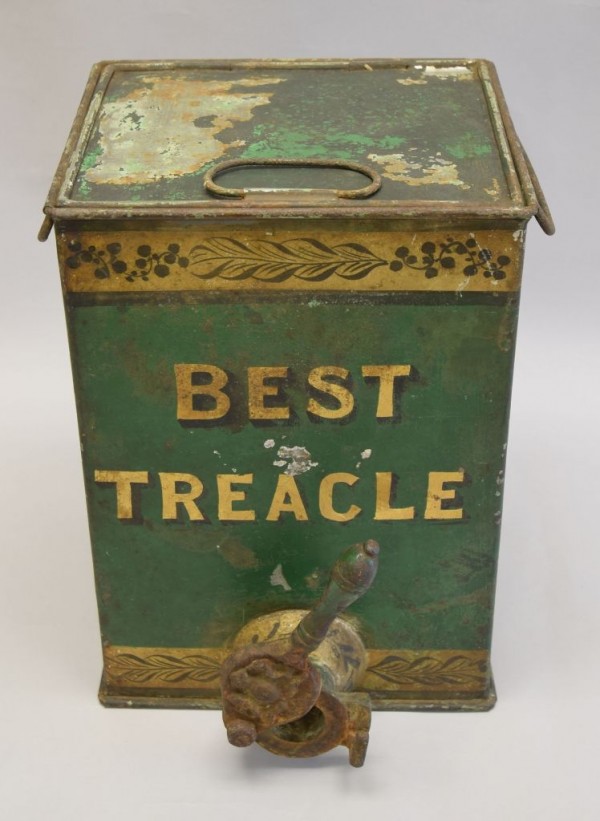
Treacle Tin from a grocer's shop in Whitwick
Before the weekly supermarket shop and the increase in packaging that self-service shopping requires, local grocers would sell some foods like flour, sugar and rice by weighing it out into bags. This meant you could buy exactly the amount you needed or could afford. This tin would dispense treacle into a suitable container for the customer.

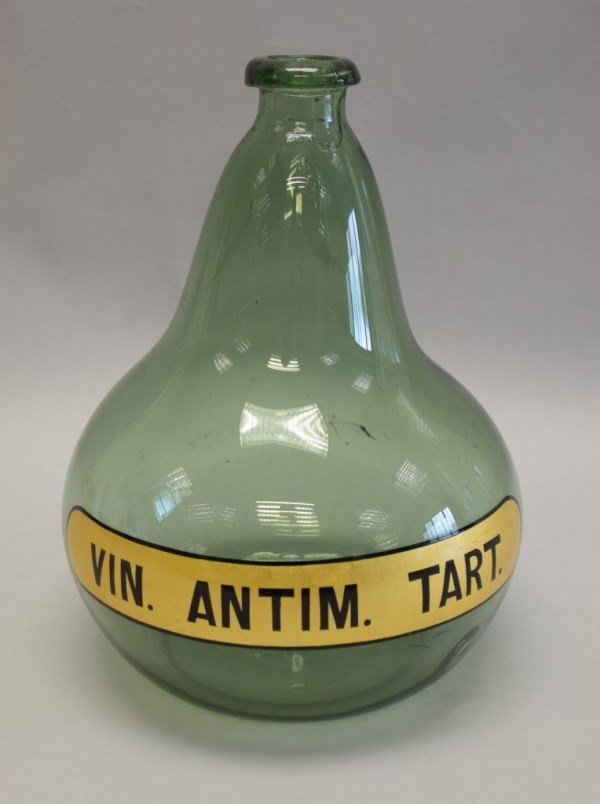
Large green chemists bottle with gold lettering 'Vin Antim Tart' from R. McLaren Todd dispensing Chemist Syston, Leicester.
Some 200 items were collected from this chemists business which was operating in the mid-20th century. Chemists shops would be found in most towns and villages and we have a large collection of items from several around the county.

